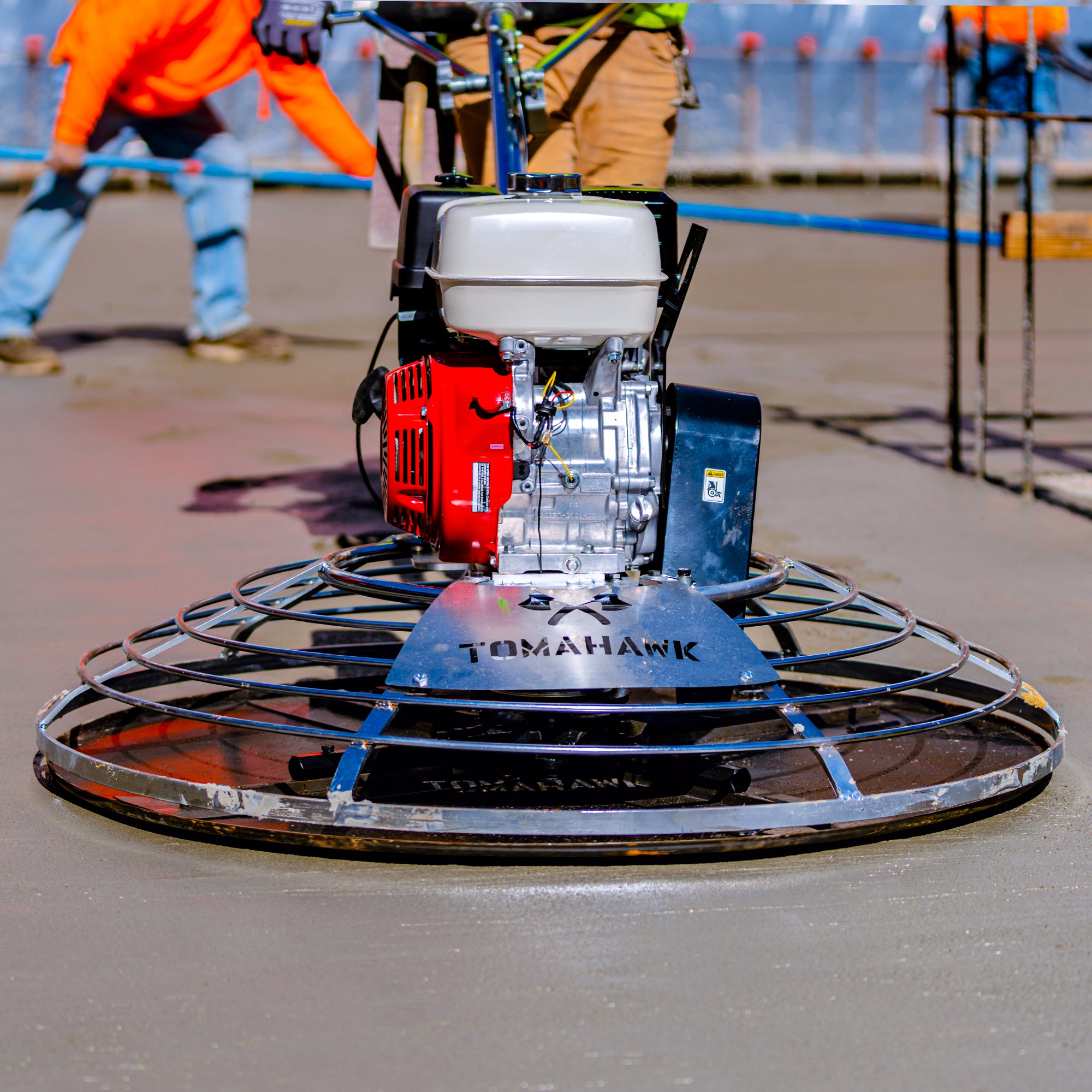In the world of construction, concrete serves as the backbone of countless structures, from towering skyscrapers to intricate pavements. Achieving the right balance of strength, durability, and aesthetics in concrete is paramount for ensuring the longevity and performance of these structures. Enter power trowels – mechanized tools that have a transformative impact on concrete finishing. In this blog, we delve into how power trowels contribute to enhancing the strength and durability of concrete surfaces, ultimately leaving a lasting finishing touch.
1. The Role of Power Trowels
Power trowels, also known as troweling machines, play a critical role in the final stages of concrete placement. These machines are equipped with rotating blades or paddles that smooth, level, and compact freshly poured concrete. The meticulous process they facilitate has a significant influence on the properties that define concrete's strength and durability.
2. Achieving Optimal Surface Compaction
One of the primary factors that contribute to concrete strength and durability is proper compaction. Power trowels excel in achieving optimal compaction by eliminating air voids and pockets within the concrete mix. The rotating blades work to densify the material, ensuring that it is uniformly compacted throughout the surface. This compaction minimizes the risk of voids that could weaken the concrete over time.
3. Enhancing Concrete Density
Concrete density is a key determinant of its strength. Power trowels contribute to enhancing concrete density by forcing aggregates and particles closer together. The combination of compaction and leveling action results in a denser mixture that exhibits improved load-bearing capabilities.
4. Surface Hardening and Wear Resistance
The finishing process carried out by power trowels leads to a smoother and more uniform surface. This smoothness is not just about aesthetics; it also plays a role in enhancing concrete's durability. A polished surface is less susceptible to wear and abrasion, making it more resistant to damage caused by foot traffic, vehicular loads, and environmental factors.
5. Reducing Permeability
Power trowels have a positive impact on concrete's permeability – its ability to resist the passage of liquids and gases. A properly finished surface with reduced voids and interconnected pores exhibits lower permeability. This characteristic is crucial in protecting the concrete from the detrimental effects of water, chemicals, and freeze-thaw cycles.
6. Addressing Potential Cracking
Cracks in concrete are often a result of shrinkage, temperature fluctuations, and uneven curing. Power trowels' ability to achieve a uniform surface can help minimize the occurrence of cracking. By creating a consistent finish, power trowels contribute to a more structurally sound and crack-resistant concrete surface.
7. Consistency and Quality
The precision and uniformity offered by power trowels contribute to the overall quality of the finished concrete. Consistency is a hallmark of high-quality construction, and power trowels play a crucial role in ensuring that the concrete surface meets established standards for strength, durability, and performance.
8. Long-Term Benefits
The impact of power trowels on concrete strength and durability extends beyond the immediate finishing process. Structures built on a foundation of well-finished concrete are more likely to stand the test of time, requiring fewer repairs and maintenance over their lifespan. This translates to long-term cost savings and peace of mind for construction professionals and building owners alike.
Power trowels go beyond aesthetics; they have a profound impact on the underlying strength and durability of concrete surfaces. By achieving optimal compaction, enhancing density, reducing permeability, and addressing potential issues, power trowels leave a finishing touch that contributes to the long-term performance of construction projects. Their role in enhancing concrete's properties underscores their importance in achieving not just visually appealing, but structurally robust, surfaces that withstand the rigors of time and use.










